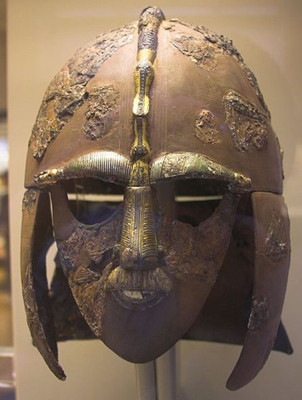But the ship also contained gold coins from France, Celtic hanging bowls from the west of Britain, Imperial table silver from Byzantium, and garnets which may have come from India or Sri Lanka. And while ship burial is essentially pagan, two silver spoons clearly show contact-direct or indirect-with the Christian world.












